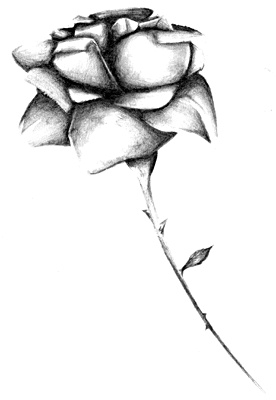All Nonfiction
- Bullying
- Books
- Academic
- Author Interviews
- Celebrity interviews
- College Articles
- College Essays
- Educator of the Year
- Heroes
- Interviews
- Memoir
- Personal Experience
- Sports
- Travel & Culture
All Opinions
- Bullying
- Current Events / Politics
- Discrimination
- Drugs / Alcohol / Smoking
- Entertainment / Celebrities
- Environment
- Love / Relationships
- Movies / Music / TV
- Pop Culture / Trends
- School / College
- Social Issues / Civics
- Spirituality / Religion
- Sports / Hobbies
All Hot Topics
- Bullying
- Community Service
- Environment
- Health
- Letters to the Editor
- Pride & Prejudice
- What Matters
- Back
Summer Guide
- Program Links
- Program Reviews
- Back
College Guide
- College Links
- College Reviews
- College Essays
- College Articles
- Back
Anatomizing the Cadaver
Female, 93 years, traumatic intracranial aneurysm, dementia. This was all we were given. Admittedly, it’s more than I was told to expect from. Nonetheless, walking into the off-smelling ‘suite’ for the first time with the air of excitement and eight body bags lying along the side wall, I wasn’t sure how I would respond when we opened them up.
I had been waiting for today since I was 6 years old. That was when I first realised I wanted to be a doctor, and began this journey. I always thought of the moment I would finally put scalpel to human flesh as the turning point, where I would finally have met the goals I have sacrificed so much for. As I entered the room, this thought left my mind.
We were briefly introduced to the equipment. Who knew there were special electronic-pencil-sharpener-looking machines to remove the blade from the scalpel when you were finished? Our instructed asked if anyone had skipped lunch, and one boy raised his hand. “Bad move, watch him, they’re usually the fainters.” To the rest of us, “do not be ashamed if you have to step outside, the fumes take time to get used to, we’ve all been there". We were told 5 students to a cadaver, split ourselves up, and moved to the bag that we would share with 80 other students for the next 12 weeks.
The fumes hit me as the boy who hadn’t eaten lunch and I opened our bag. It seemed we were the most eager within the group. And there it was. There she was, I should say. The second years and Tuesday’s first year group had already worked on her. She had been hacked to bits. Her left lower limb twisted at an inconceivable angle as it was no longer attached to the pelvis. Though some were slightly repulsed, for this I was thankful, it dehumanised her.
Our tutor came over to get us started and the boy handed me the scalpel. “Chicken” I joked, he quickly took the scalpel back, I secretly felt overpowering relief. The upper left limb was our domain. We began. The boy made an incision, and we began separating the fascia to expose the deltoid. As I watched those initial cuts, my fear and my revulsion of the smell went to the back of my mind, and I let myself detach and allow interest and curiosity to prevail.
A girl in my group and I soon began a debate. The woman’s entire body was exposed, except for her face. We debated over whether it was more respectful to leave her face covered, or to expose her. The majority agreed that we should keep her covered, but I suspect it was more from fear than respect.
My fear gone, I soon took over as the primary dissector. Our tutor came over to give me some advice. “Use your body to brace the base so you can access the axilla”. I was later told I was the only one who had the stomach to do what I did next. The dead arm rested on my hip, excess fluid and fat draining onto my previously pristine lab coat, as I sliced into the meat. I hit the cephalic vein (a great embarrassment), and as I recognised the humiliated feeling, I realised this had all become about the anatomy.
There was a woman in front of me. She had lived for 93 years. She looked to be of average height, caucasian features, nicely trimmed fingernails. The findings chart indicated a cyst had been found on her ovaries. This is all I know about her. Maybe as I anatomize her further, tear her limb from limb, I may learn more. I have seen her heart. Touched her lung. Identified her gall bladder. I do not believe in god, but maybe she did, maybe she believed she would be in a better place now. I don’t know, and there’s no point in dwelling on it. What I know is this: she gave what was left of her, maybe the only thing she had to give, so that we could learn. We learn to save lives. She gave herself to us, so that down the track, others may live. Cover her face, uncover her face, drip her fat down my lab coat, cut her cephalic vein - I am having an impact on her, but her impact on me will be far more significant. She sacrificed so we can learn, so others may live, and through learning as much as we can, I believe we honour that sacrifice.

Similar Articles
JOIN THE DISCUSSION
This article has 0 comments.
